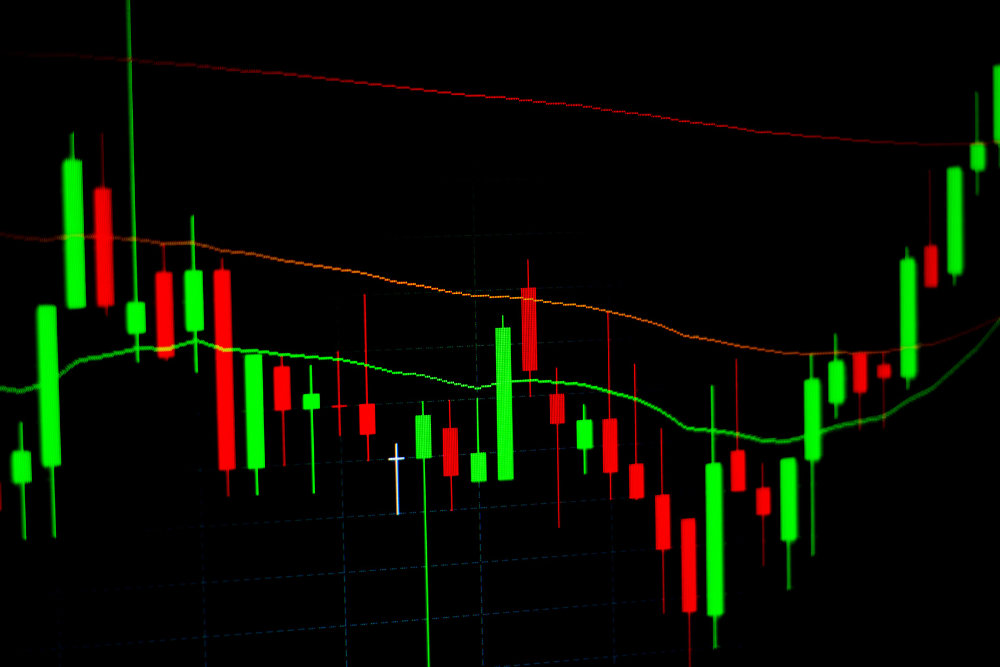
Trading With Forex: A Comprehensive Guide for Beginners
Forex trading, also known as foreign exchange trading, has gained immense popularity as a lucrative financial endeavor. Whether you're an aspiring investor or someone looking to diversify their portfolio, understanding the dynamics of forex trading is crucial. In this article, we will guide you through the basics, strategies, and pitfalls of trading with forex.

Introduction to Forex Trading
Forex trading involves the exchange of currencies on the global market. It's the largest and most liquid financial market globally, with trillions of dollars traded daily. The primary goal is to profit from the fluctuations in currency values.
Getting Started with Forex Trading
Choosing a Reliable Broker
Selecting the right broker is the first step in your forex trading journey. Look for a broker with a good reputation, transparent fee structures, and a user-friendly platform. Research and read reviews before making a decision.
Understanding Basic Terms and Concepts
Familiarize yourself with terms like 'pip,' 'spread,' and 'lot size.' Understanding these basics will enable you to navigate the market with confidence.
Major Currency Pairs
There are various currency pairs in the forex market, but some are more commonly traded than others. Major pairs include EUR/USD, USD/JPY, and GBP/USD. The values of these pairs are influenced by economic indicators, geopolitical events, and market sentiment.
Analyzing Forex Markets
Technical Analysis Techniques
Technical analysis involves studying past market data to predict future price movements. Learn to read charts, identify trends, and use technical indicators like moving averages and RSI.
Fundamental Analysis Essentials
Fundamental analysis focuses on economic indicators, interest rates, and geopolitical events. Stay informed about economic calendars and central bank decisions to make informed trading decisions.
Creating a Trading Plan
Setting Goals and Risk Tolerance
Establish clear financial goals and determine how much risk you are willing to take. A well-defined trading with forex plan helps you stay disciplined and avoid emotional decision-making.
Developing a Strategy
Choose a trading strategy that aligns with your goals and risk tolerance. Whether you prefer day trading or long-term investing, having a strategy enhances your chances of success.

Executing Trades Effectively
Placing Orders and Managing Trades
Understand different order types, including market orders, limit orders, and stop orders. Implement risk management techniques, such as setting stop-loss and take-profit levels, to protect your capital.
Importance of Risk Management
Forex trading involves risks, and managing these risks is crucial for long-term success. Never risk more than you can afford to lose, and diversify your investments to spread risk.
Common Forex Trading Mistakes
Identifying and Avoiding Pitfalls
Learn from the mistakes of others. Common pitfalls include overtrading, emotional decision-making, and neglecting risk management. Stay vigilant and continuously evaluate your trading approach.
Learning from Mistakes
Mistakes are inevitable in forex trading. Use them as learning opportunities, adapt your strategy, and refine your approach over time.
Leverage in Forex Trading
Understanding Leverage and Its Risks
Leverage allows you to control a large position with a relatively small amount of capital. While it amplifies profits, it also increases the risk of significant losses. Use leverage cautiously and be aware of its implications.
Proper Use of Leverage
If you choose to use leverage, do so responsibly. Many successful traders use conservative leverage ratios to protect their capital. Avoid excessive leverage, especially as a beginner.
Staying Informed with Market News
The Impact of Global Events on the Forex Market
Economic and political events worldwide can influence currency values. Stay informed about major announcements, economic data releases, and geopolitical developments.
Reliable Sources for Market News
Rely on reputable news sources and financial websites for accurate and timely information. Being ahead of the curve on market news gives you a competitive edge.
Psychology of Forex Trading
Handling Emotions During Trades
Fear and greed can cloud judgment and lead to impulsive decisions. Develop emotional intelligence and maintain a calm mindset during trades.
Maintaining Discipline
Stick to your trading plan, even when faced with market fluctuations. Discipline is a key trait of successful forex traders.
Pros and Cons of Forex Trading
Benefits and Potential Risks
Forex trading offers the potential for substantial profits, high liquidity, and 24/5 market access. However, it also comes with risks, including market volatility and the potential for significant losses.
Is Forex Trading Suitable for Everyone?
Consider your risk tolerance, financial goals, and commitment before entering the forex market. It may not be suitable for everyone, and thorough research is essential.
Conclusion
In conclusion, trading with forex can be a rewarding but challenging endeavor. Success requires a combination of knowledge, discipline, and continuous learning. By understanding the intricacies of the forex market and implementing sound strategies, you can navigate this dynamic financial landscape with confidence.

Frequently Asked Questions
Is forex trading suitable for beginners?
Forex trading can be challenging for beginners, but with education and practice, it becomes more manageable.
How much capital do I need to start forex trading?
The amount varies, but it's advisable to start with a capital you can afford to lose and gradually increase as you gain experience.
What role does leverage play in forex trading?
Leverage magnifies both profits and losses, so it should be used cautiously and in line with your risk tolerance.
Can I trade forex part-time?
Yes, many traders successfully trade forex part-time, but it requires careful time management and planning.
How do I stay updated with forex market news?
Utilize reputable financial news sources and set up notifications for important economic events.
Appreciate the creator